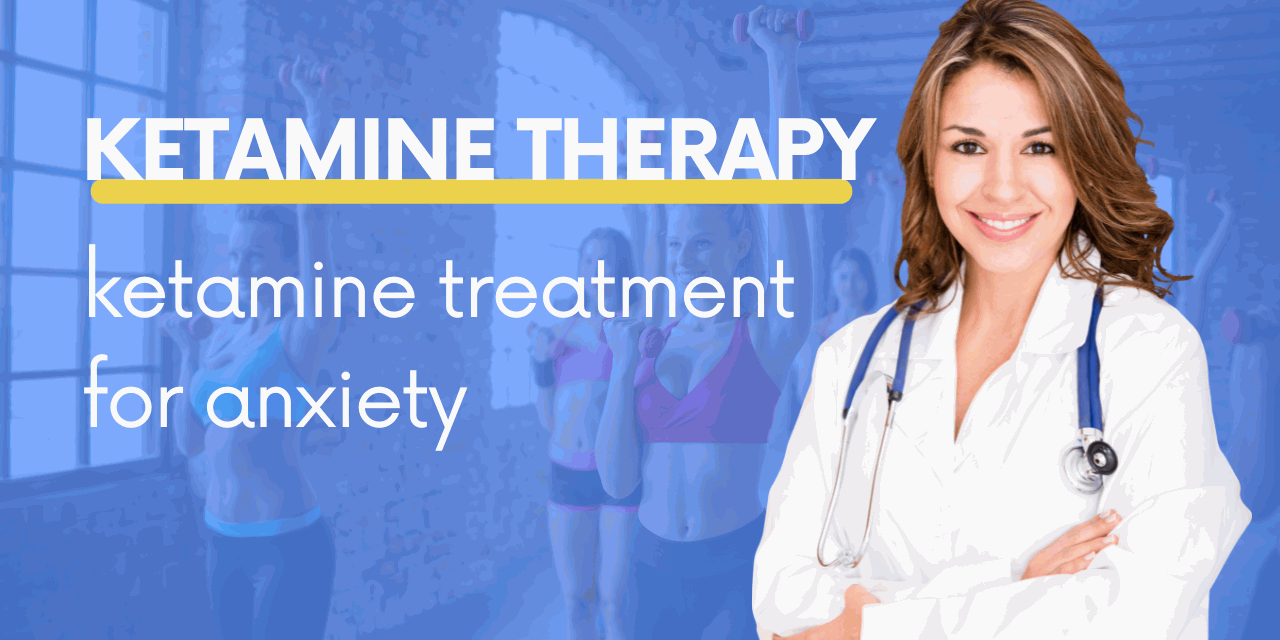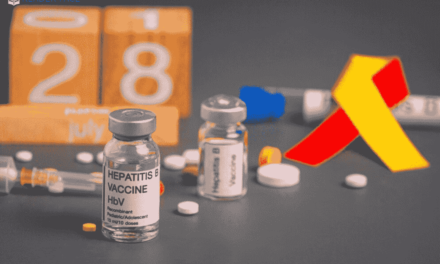Who is not a good candidate for ketamine therapy
Ketamine therapy may not be suitable for everyone. Individuals with certain medical conditions or circumstances may not be good candidates for ketamine therapy. Here are some examples:
History of Psychosis: Ketamine can exacerbate symptoms of psychosis or underlying psychotic disorders. It may not be advisable for individuals with a history of schizophrenia or other psychotic disorders.
Uncontrolled Hypertension: Ketamine can temporarily elevate blood pressure and heart rate. Individuals with uncontrolled hypertension or cardiovascular issues may not be suitable candidates due to the potential risks.
Severe Liver or Kidney Dysfunction: Ketamine is metabolized primarily by the liver and excreted via the kidneys. Individuals with severe liver or kidney dysfunction may have difficulty metabolizing and excreting ketamine properly, leading to potential complications.
The truth about ketamine therapy
While ketamine therapy offers hope for many individuals who have not responded to conventional treatments, it is not without risks. Potential side effects include dissociation, hallucinations, increased blood pressure, and dependence with long-term use. Additionally, the sustainability of treatment effects remains a subject of ongoing research and debate.
Ketamine therapy is a subject of growing interest due to its potential to treat various mental health conditions and chronic pain. This therapy involves administering ketamine, an anesthetic drug, at sub-anesthetic doses to produce therapeutic effects. Although unconventional, ketamine therapy has shown promise in addressing treatment-resistant depression, PTSD, chronic pain, and other disorders. The mechanism of ketamine’s therapeutic action is not fully understood, but it’s believed to involve the modulation of glutamate, a neurotransmitter involved in mood regulation. By enhancing synaptic connectivity and promoting neuroplasticity, ketamine may help reset dysfunctional neural circuits associated with mood disorders and chronic pain.
While ketamine therapy offers rapid relief for many individuals, it’s essential to acknowledge its potential risks and limitations. Side effects may include dissociation, hallucinations, increased blood pressure, and dependence with long-term use. Additionally, the sustainability of treatment effects remains a subject of ongoing research and debate. Learn more
How to qualify for ketamine treatment
To qualify for ketamine treatment, individuals typically need to undergo an evaluation by a qualified healthcare provider specializing in ketamine therapy. The specific criteria for eligibility may vary depending on the provider’s protocols, the individual’s medical history, and the nature of their condition. However, there are some common factors that may influence eligibility for ketamine treatment:
Diagnosis: Patients seeking ketamine treatment often need to have a documented diagnosis of a qualifying condition, such as treatment-resistant depression, PTSD, bipolar disorder, chronic pain, or other mood disorders.
Treatment History: Many providers require patients to have tried and failed to respond adequately to conventional treatments, including psychotherapy and various medications, before considering ketamine therapy.
Medical Evaluation: Before initiating ketamine treatment, individuals typically undergo a thorough medical evaluation to assess their overall health, medication history, and any potential contraindications or risk factors.
Psychological Assessment: Since ketamine therapy can have profound effects on mood and cognition, patients may undergo a psychological assessment to evaluate their mental health status and suitability for treatment.
Informed Consent: Patients must provide informed consent before undergoing ketamine therapy, which involves understanding the potential benefits, risks, and alternatives to treatment.
Monitoring and Follow-up: Throughout the course of ketamine treatment, patients are usually monitored closely for any adverse effects or changes in symptoms. Regular follow-up appointments may be scheduled to assess treatment response and adjust the treatment plan as needed.
Is ketamine treatment effective
The effectiveness of ketamine treatment varies depending on the individual’s condition, response to treatment, and other factors. Ketamine has shown promising results in treating certain mental health conditions and chronic pain disorders, particularly in cases where traditional treatments have failed to provide relief.
For treatment-resistant depression, studies have demonstrated that ketamine can lead to rapid improvements in mood and reduction of depressive symptoms, often within hours or days of administration. Similarly, ketamine has shown efficacy in relieving symptoms of PTSD, bipolar disorder, and other mood disorders.
In the context of chronic pain management, ketamine’s analgesic properties may provide relief for individuals suffering from conditions such as neuropathic pain, fibromyalgia, and complex regional pain syndrome (CRPS). By modulating pain signaling pathways in the brain and spinal cord, ketamine can help alleviate pain and improve quality of life for some patients.
However, it’s important to note that ketamine treatment may not be effective for everyone, and individual responses can vary. Factors such as dosage, treatment frequency, and coexisting medical conditions can influence treatment outcomes. Additionally, the sustainability of ketamine’s effects over the long term is still being studied, and more research is needed to fully understand its benefits and limitations.
Overall, while ketamine treatment shows promise as a therapeutic option for certain conditions, it’s essential for patients to work closely with healthcare providers to determine the most appropriate treatment approach based on their individual needs and circumstances.
Ketamine risks and benefits
Ketamine therapy offers both potential benefits and risks that individuals should consider before undergoing treatment.
Benefits:
Rapid Relief: One of the primary benefits of ketamine therapy is its rapid onset of action.
Treatment-Resistant Conditions: Ketamine has shown efficacy in treating conditions such as treatment-resistant depression, PTSD, and chronic pain, where conventional treatments have been unsuccessful.
Improved Quality of Life: Many individuals who undergo ketamine therapy report significant improvements in their mood, functioning, and overall quality of life.
Risks:
Side Effects: Common side effects of ketamine therapy may include dissociation, hallucinations, nausea, increased blood pressure, and dizziness. These side effects are usually transient and resolve shortly after treatment but can be concerning for some individuals.
Dependence: With long-term or frequent use, ketamine can lead to dependence or addiction, particularly in individuals with a history of substance abuse.
Safety Concerns: While ketamine is generally considered safe when administered under medical supervision, there are potential risks associated with its use, including respiratory depression, cardiovascular effects, and bladder dysfunction with long-term use.
Limited Long-Term Data: The long-term effects of ketamine therapy are still not well understood, and more research is needed to assess its safety and efficacy over extended periods.
Overall, while ketamine therapy can offer significant benefits for certain individuals, it’s essential to weigh these potential benefits against the associated risks and consider them in the context of individual health needs and treatment goals. Close monitoring by a qualified healthcare provider is crucial to ensure the safety and effectiveness of ketamine therapy.
How long does ketamine work for depression
The duration of ketamine’s antidepressant effects can vary widely among individuals and depends on several factors, including the dosage, frequency of administration, and individual response to treatment.
In general, ketamine’s antidepressant effects are known for their rapid onset and relatively short duration compared to traditional antidepressants. Many individuals experience significant improvements in mood and reduction of depressive symptoms within hours or days after a single ketamine infusion. This rapid response is particularly beneficial for individuals experiencing severe depression or suicidal ideation, as it can provide immediate relief and help stabilize mood.
However, the duration of ketamine’s antidepressant effects is typically temporary, lasting anywhere from a few days to a few weeks for most individuals. Some patients may experience a longer-lasting response with repeated or maintenance ketamine treatments, while others may require more frequent infusions to sustain the antidepressant effects over time.
It’s important to note that ketamine is often used as an adjunctive treatment for depression, meaning it is combined with other therapies such as psychotherapy or medication management to optimize long-term outcomes. Regular monitoring by a healthcare provider is essential to assess treatment response, adjust the treatment plan as needed, and provide ongoing support for individuals undergoing ketamine therapy for depression.
Ketamine therapy cost
The cost of ketamine therapy can vary depending on several factors, including the provider’s location, the type of ketamine treatment (infusion, nasal spray, etc.), and the number of sessions required. On average, a single ketamine infusion session can range from $400 to $800 or more, and patients may require multiple sessions for optimal results. Some healthcare providers offer package deals or discounts for bulk sessions, while others may accept insurance coverage or offer financing options to help offset the cost. However, it’s essential to inquire about pricing and payment options with your chosen ketamine therapy provider.
Does ketamine therapy get you high
Ketamine therapy, when administered under medical supervision at therapeutic doses, is not intended to induce a state of intoxication or “high” sensation. The goal of ketamine therapy is to leverage the medication’s antidepressant, anxiolytic, or analgesic properties to alleviate symptoms associated with conditions such as depression, anxiety, PTSD, or chronic pain.
However, ketamine is a dissociative anesthetic and can produce altered states of consciousness, including feelings of dissociation, detachment, or disconnection from one’s surroundings. Some individuals may interpret these sensations as being “high,” particularly if they are unfamiliar with the effects of ketamine or if the dose administered is higher than necessary for therapeutic purposes.
It’s crucial to emphasize that the subjective experience of ketamine therapy can vary widely among individuals and may be influenced by factors such as dosage, route of administration, and individual susceptibility to its effects. Healthcare providers typically monitor patients closely during ketamine therapy to ensure safety and comfort and to minimize the risk of adverse reactions or misuse.
In summary, while ketamine therapy may induce altered states of consciousness, its primary objective is to provide therapeutic benefit rather than recreational intoxication. As such, ketamine therapy should only be administered by qualified healthcare professionals in a controlled medical setting.
Ketamine treatment for anxiety
Ketamine treatment has emerged as a potential option for individuals struggling with anxiety disorders, offering a novel approach to managing symptoms when traditional therapies have been ineffective.
Research suggests that ketamine’s rapid-acting antidepressant properties may also extend to anxiety relief. By modulating glutamate neurotransmission and promoting synaptic plasticity, ketamine can help regulate mood and reduce anxiety symptoms.
During ketamine treatment sessions, patients often experience a sense of relaxation and calmness, which can provide immediate relief from anxiety symptoms. This acute effect is particularly beneficial for individuals experiencing acute anxiety or panic attacks.
Additionally, ketamine therapy may offer long-lasting benefits for anxiety management. Some studies have shown that repeated ketamine treatments can lead to sustained reductions in anxiety symptoms over time, even after the effects of individual infusions wear off.
However, it’s essential to note that ketamine treatment for anxiety is still a relatively new and evolving field, and more research is needed to fully understand its efficacy and safety profile. Patients considering ketamine therapy for anxiety should consult with a qualified healthcare provider to discuss their treatment options and develop a personalized plan that addresses their specific needs and concerns.
Ketamine therapy for chronic pain
Ketamine therapy has emerged as a promising option for individuals suffering from chronic pain conditions, offering relief when traditional treatments have proven inadequate. Ketamine’s ability to modulate pain perception and inhibit central sensitization makes it a valuable tool in the management of various pain disorders.
When administered at sub-anesthetic doses, ketamine can help alleviate chronic pain by blocking NMDA receptors and reducing hyperexcitability in the central nervous system. This mechanism of action not only provides immediate pain relief but also helps prevent the development of chronic pain states and improves overall pain management outcomes.
Ketamine therapy for chronic pain often involves intravenous infusions or intramuscular injections administered in a clinical setting under medical supervision. Patients may experience a reduction in pain intensity, improved physical function, and enhanced quality of life following ketamine treatment.
While ketamine therapy can be effective for many individuals with chronic pain, its benefits may vary depending on factors such as the underlying cause of pain, treatment protocol, and individual response. As with any medical intervention, it’s essential for patients to work closely with their healthcare providers to determine the most appropriate treatment approach and ensure optimal outcomes.
Best music for ketamine therapy
The choice of music during ketamine therapy can play a significant role in enhancing the therapeutic experience and promoting relaxation and introspection. Since ketamine therapy often induces altered states of consciousness, selecting the right music can help create a supportive environment conducive to healing and emotional processing.
Ambient music, characterized by soothing melodies, gentle rhythms, and ethereal sounds, is commonly used during ketamine therapy sessions. This genre of music can help evoke a sense of tranquility, allowing patients to enter a meditative state and explore their inner thoughts and emotions.
Nature sounds, such as flowing water, bird songs, or gentle rain, can also enhance the therapeutic atmosphere during ketamine sessions. These natural sounds have a calming effect on the mind and can promote feelings of connection with the environment and inner peace.
Instrumental music, such as classical, piano, or instrumental versions of popular songs, can provide a comforting backdrop for ketamine therapy. The absence of lyrics allows patients to focus inward and immerse themselves fully in the music without distraction.
Ultimately, the best music for ketamine therapy is subjective and may vary depending on individual preferences and therapeutic goals. It’s essential for patients to communicate their preferences to their healthcare providers to ensure a personalized and supportive environment during ketamine therapy sessions.
Does medicaid cover ketamine therapy
As of my last update in January 2022, Medicaid coverage for ketamine therapy varies depending on the state and individual circumstances. While some states may offer coverage for ketamine therapy under certain conditions, others may not include it in their Medicaid benefits package.
In general, Medicaid coverage for ketamine therapy is more likely if the treatment is deemed medically necessary for a covered condition, such as treatment-resistant depression or chronic pain, and if it is provided by a licensed healthcare provider in an approved clinical setting.
However, Medicaid coverage criteria can be complex and may require prior authorization, documentation of medical necessity, and adherence to specific guidelines or treatment protocols. Additionally, coverage determinations may be subject to review and approval by Medicaid managed care organizations or state Medicaid agencies.
Individuals seeking Medicaid coverage for ketamine therapy are encouraged to contact their state Medicaid agency or Medicaid managed care plan for information on eligibility, coverage criteria, and the process for obtaining authorization. It’s also advisable to consult with healthcare providers experienced in ketamine therapy who can assist with navigating the reimbursement process and advocating for coverage when appropriate.
Ketamine therapy side effects
While ketamine therapy can offer significant benefits for individuals struggling with mental health conditions or chronic pain, it is essential to be aware of potential side effects associated with its use.
Common side effects of ketamine therapy may include
Dissociation: Ketamine can induce feelings of dissociation or detachment from one’s surroundings, which may be unsettling for some individuals.
Hallucinations: Some patients may experience visual or auditory hallucinations during or shortly after ketamine administration.
Nausea and Vomiting: Ketamine can cause gastrointestinal upset, leading to nausea and vomiting in some individuals.
Increased Heart Rate and Blood Pressure: Ketamine may temporarily elevate heart rate and blood pressure, particularly at higher doses.
Dizziness and Vertigo: Some patients may experience feelings of dizziness or vertigo during ketamine therapy sessions.
Bladder Dysfunction: Long-term or frequent use of ketamine may lead to bladder dysfunction, including urinary urgency, frequency, or incontinence.
Psychological Disturbances: In rare cases, ketamine therapy may exacerbate underlying psychiatric symptoms or trigger anxiety, agitation, or mood swings.
Ketamine therapy reviews
Reviews of ketamine therapy vary widely depending on individual experiences and the specific condition being treated. While some individuals report profound improvements in mood, reduction of depressive symptoms, and relief from chronic pain following ketamine therapy, others may have more mixed or limited results.
Positive reviews often highlight the rapid onset of ketamine’s therapeutic effects, with many patients reporting significant improvements in mood and functioning within hours or days of treatment. Some individuals describe ketamine therapy as life-changing, providing relief from symptoms that had previously been resistant to other treatments.
However, it’s essential to acknowledge that ketamine therapy may not be effective for everyone, and individual responses can vary. Some patients may experience only temporary relief from symptoms, while others may not respond to treatment at all. Additionally, ketamine therapy is not without risks, and some individuals may experience side effects such as dissociation, hallucinations, or gastrointestinal upset.
Overall, while many individuals find ketamine therapy to be a valuable and effective treatment option, it’s essential to approach it with realistic expectations and in collaboration with a qualified healthcare provider. Consulting with experienced professionals and seeking out multiple perspectives can help individuals make informed decisions about whether ketamine therapy is right for them.
Conclusion
Ketamine therapy represents a promising frontier in the treatment of depression, PTSD, chronic pain, and other debilitating conditions. While it offers rapid relief for many. People also search








